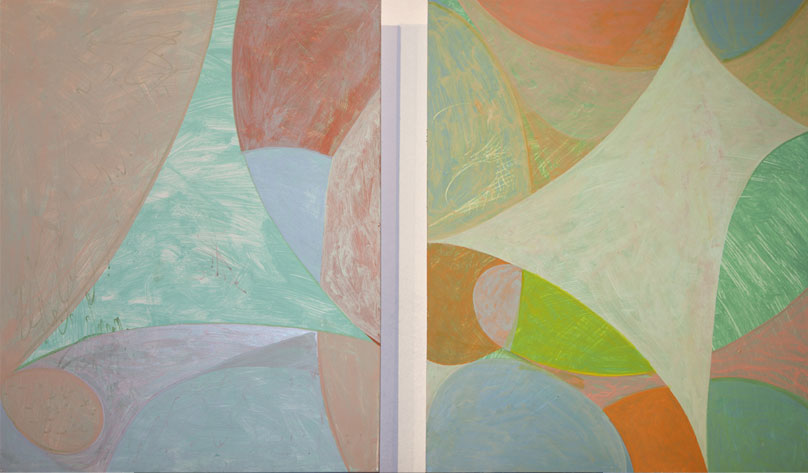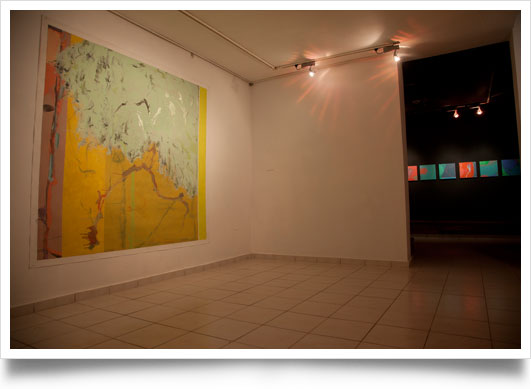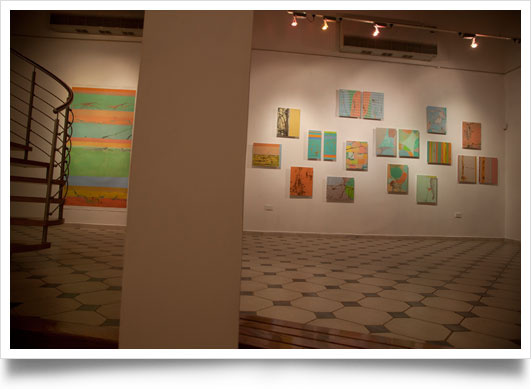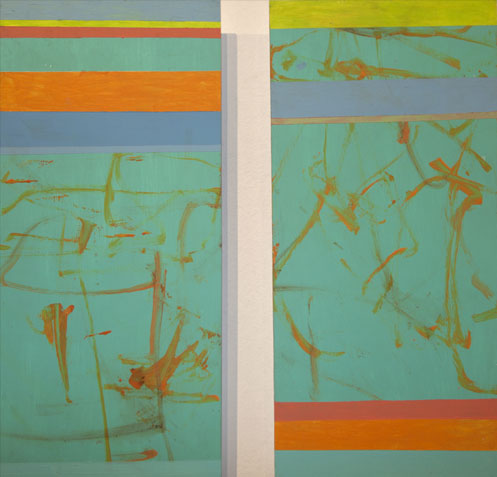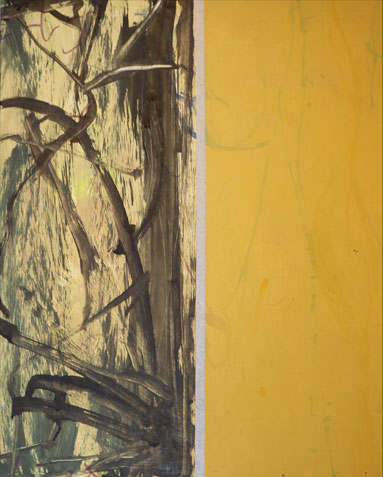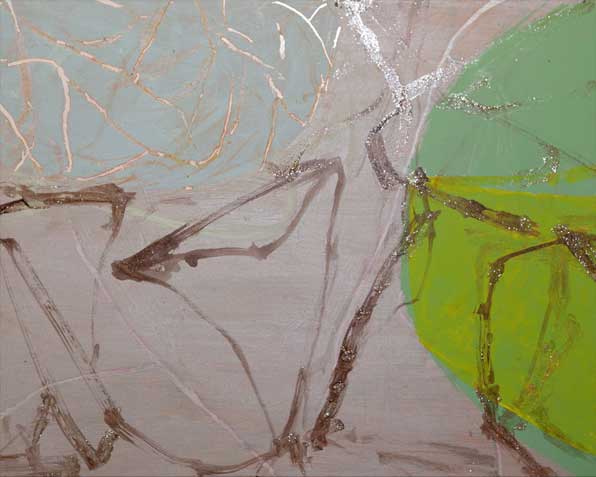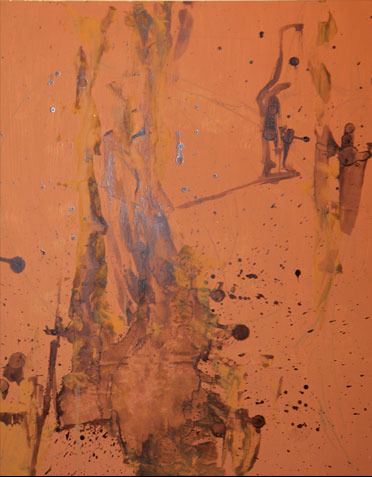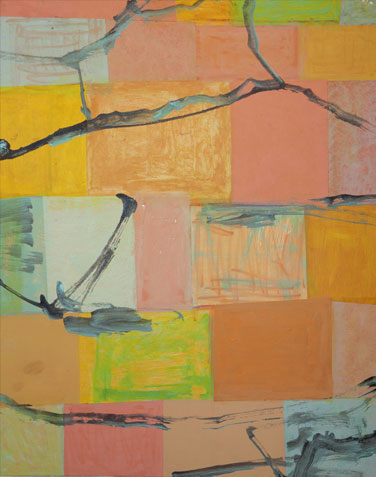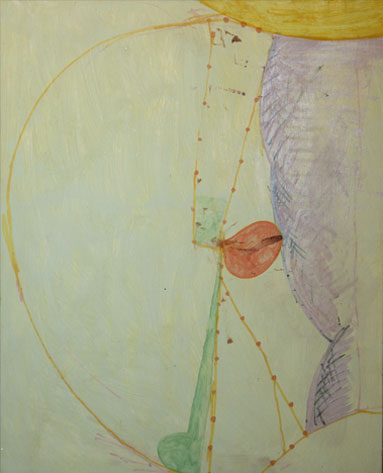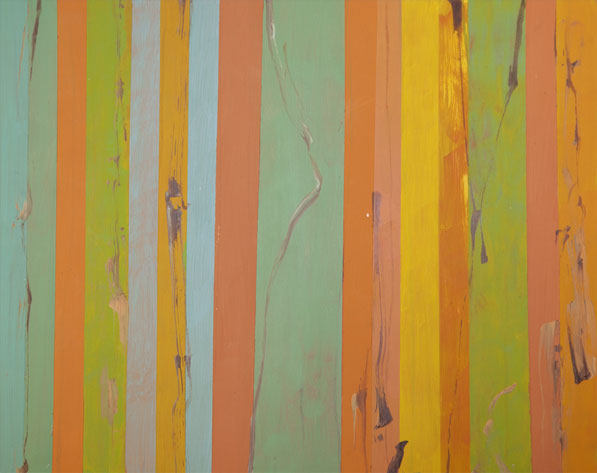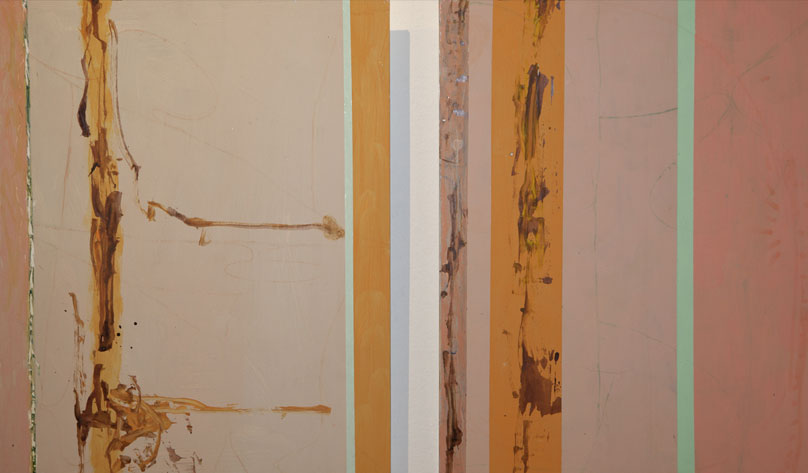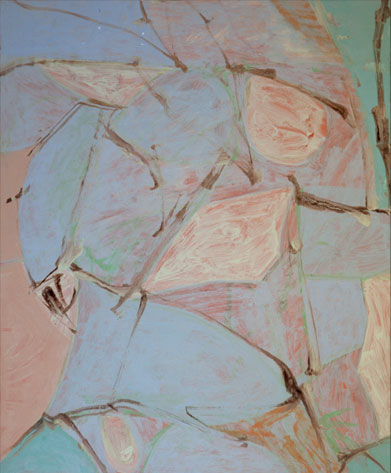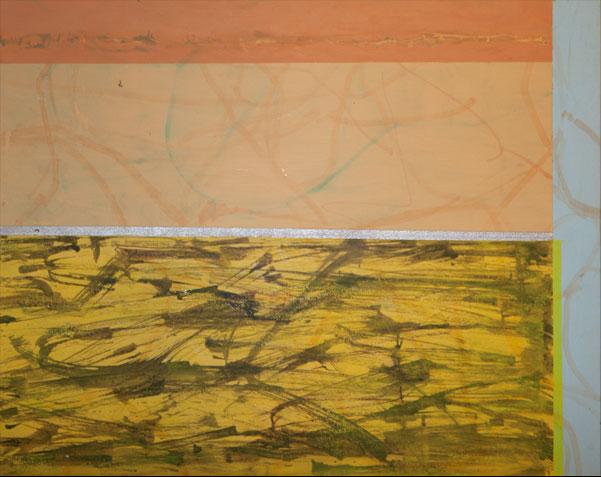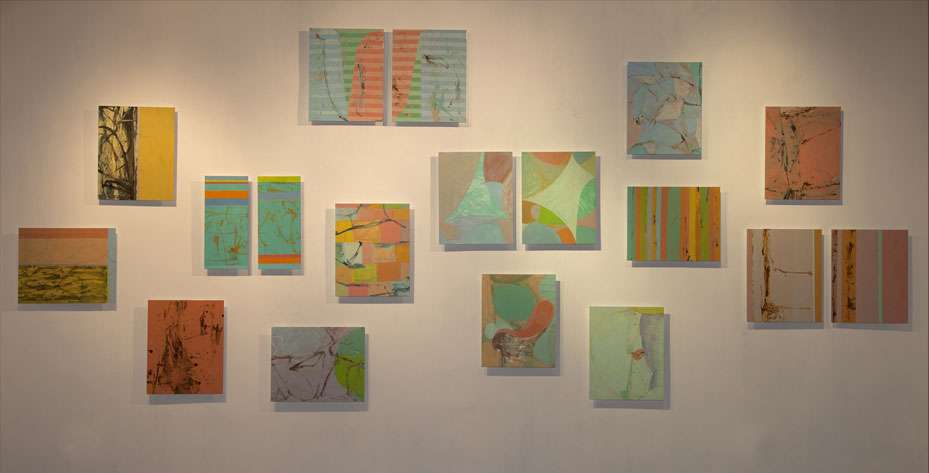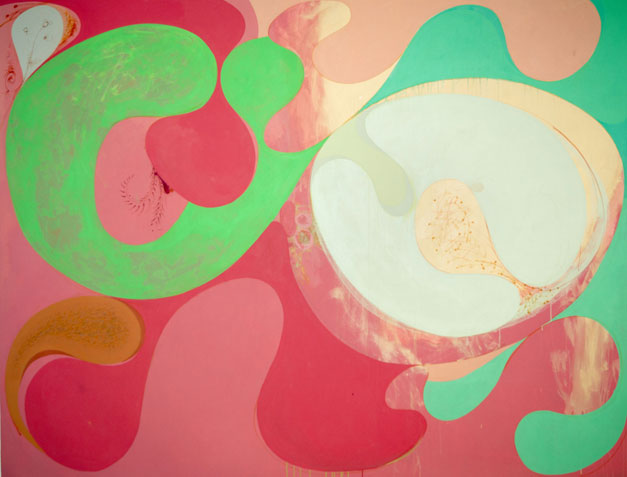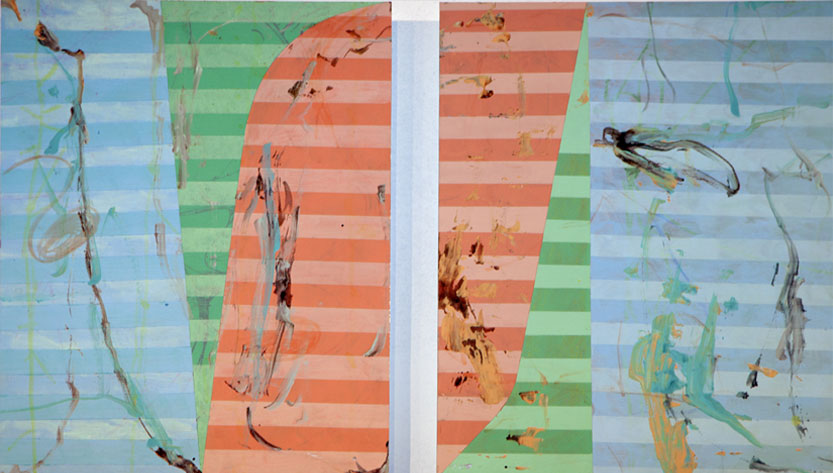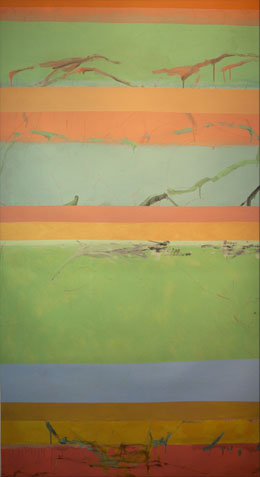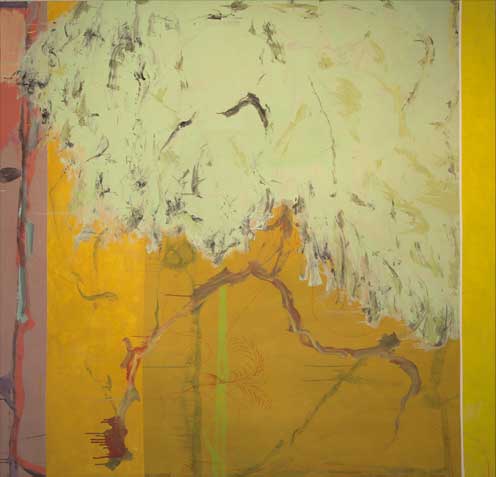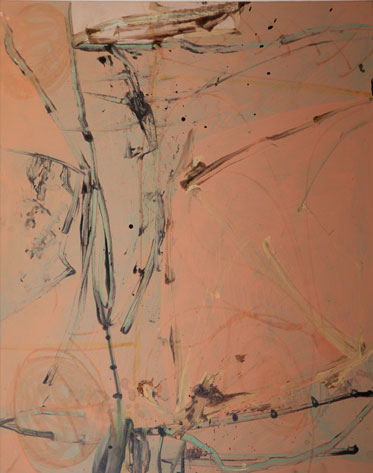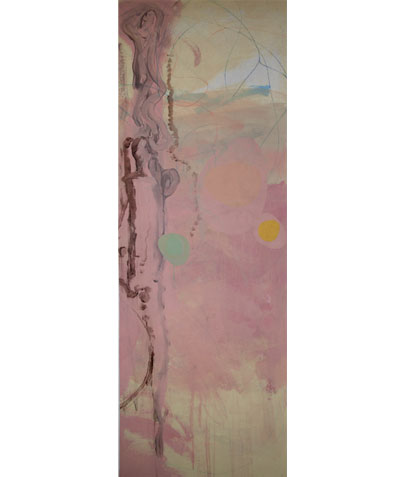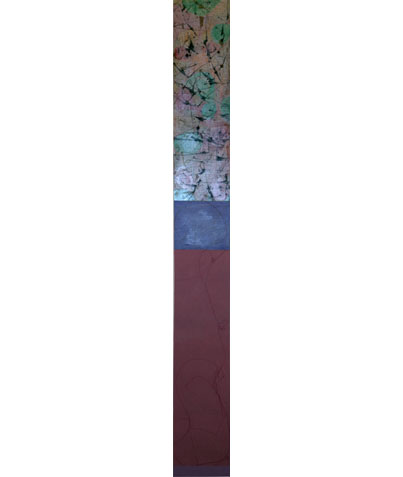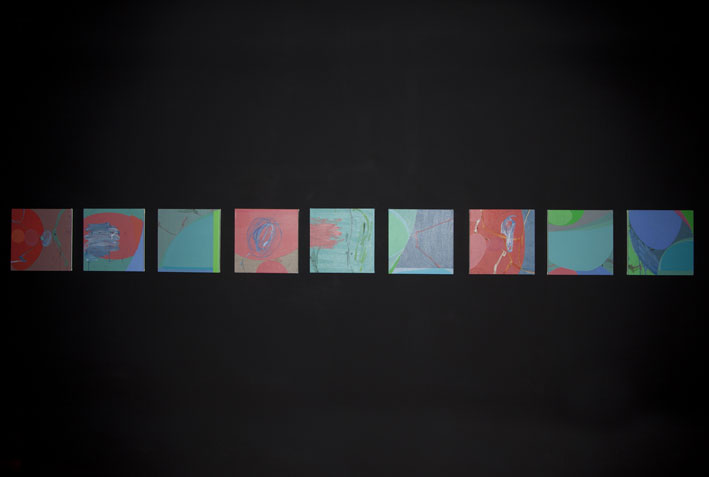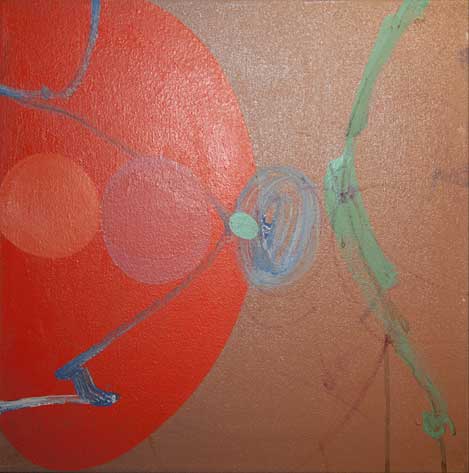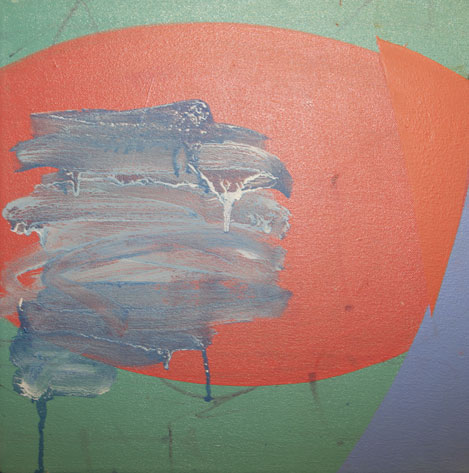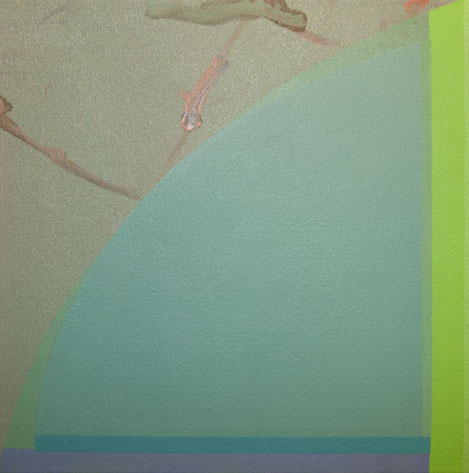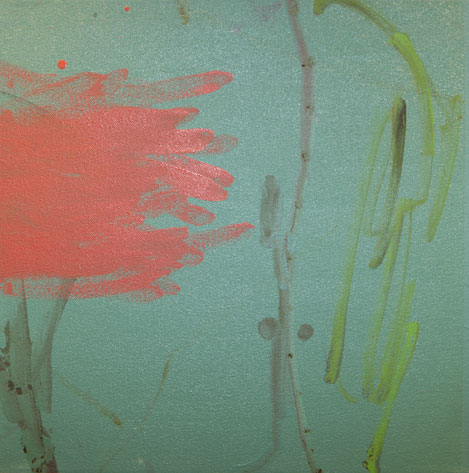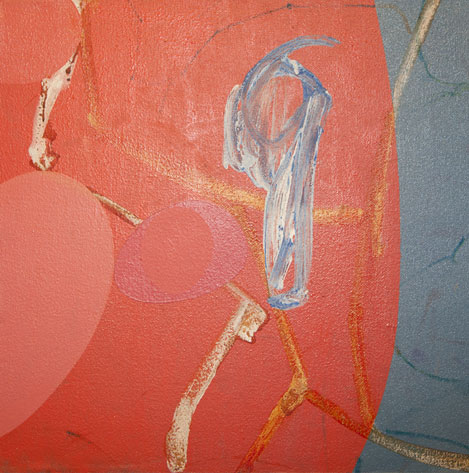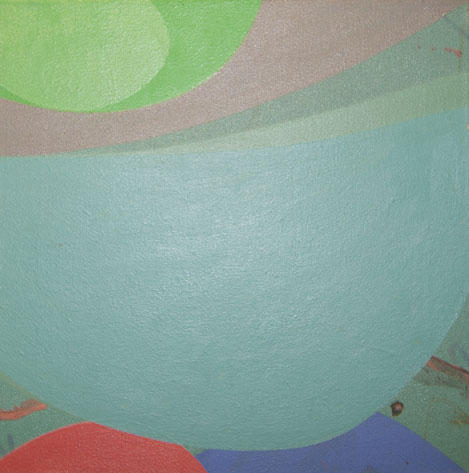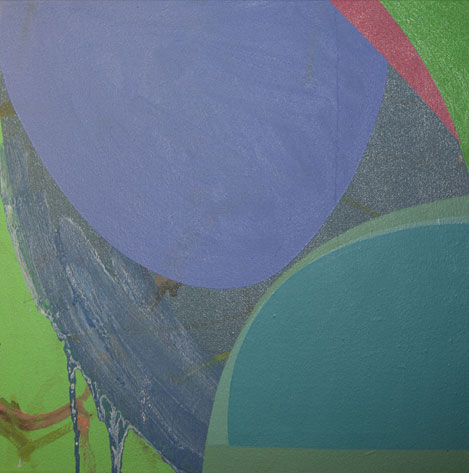I was going to say something very important…, but I already forgot
Postscript for a young artist, or constructive criticism for not too reliable paintings
Greatness is not an attribute of the works of art only the artist is
great, and there are times when a great artist must play, must reveal all sides of
his personality, and above all things, must not shut himself up in the cage of the
unconscious. He must not fear freedom, not even the possibility of freeing himself from the urges of his unconscious.
Herbert Read
Letter to a Young Artist
Recently, at a forum of discussion, one of my pupils was saying with overwhelming logic: everyone speaks of art, but almost no one speaks of the artists. About to start writing these notes I thought: few truly speak to the artists. One of the most attractive details of the Letter to a Young Artist, by Herbert Read, is that he addresses the artist explicitly and turns the artist into the ideal interlocutor for the critical discourse. As a result of one of those peculiar associations we sometimes have, the anecdotes of famous artists you copied while preparing this show made me think of that text by Herbert Read. Obviously that is the origin of the title of this brief commentary on your work. I already know that the reference to a young artist in that tile may seem ironical, taking into consideration that I am speaking to one of the authors with the largest career in postmodern Cuban art, but I think you put yourself in that position, given the combination of admiration and freshness with which you normally relate to those you consider the great ones in the history of art.
It had been a long time since the word freshness did not refer me to the meaning it receives in Cuba. But yes, I think you have to be a bit fresh to play with the paradigms of twentieth-century painting the way you do. Suddenly I ask myself if the title Fresh Paint for that 1979 exhibition in which you participated and which was a preamble of Volume One did not also foresee this meaning, given by the everyday language in Cuba: a fresh painting, recently finished and still wet, would then be interpreted as a fresh, somewhat irreverent painting, impregnated of that vocation of freedom that also Herbert Read points out among the attributes of the great artists. The word game is not unheard-of, and very well suits a work like yours, which since those days opened in Cuban art a path of experimentation in which painting was being related to the language while the language of painting was being investigated.
One of the themes that always draw my attention when I think about your work is that tension between a painting understood as text and a text that always dialogues and challenges the painting itself. I mean, a text that is sustained by (and which amplifies) the painting’s textual reality, and which at the same time seeks to diminish the importance of, questions and seems to answer to the factual reality of the painting. Observing that one of the chapters of this new exhibition is entitled The Suite of the Diversionist, I cannot but suggest that diversionist, distractive and subversive nature of many of the texts you elaborate, not only with regard to a specific reading and enunciation context, but also with regard to what its context of origin should be: the painting.
I know it is difficult for you to accept that there may be a distance between the titles of your paintings and the paintings themselves. Because you, better than anyone, know that those titles are born from a very personalb very existential relation with what each work means to you. However, you arrive to that title experience as meta-text after you have solved the problem of the painting as a relatively autonomous text. And that autonomy of the pictorial text is precisely the one that is moved and reaches a somewhat critical point with the appearance (I feel like saying the imposition) of the title. If there is one reason why I would like to know a little more about painting is to be able to describe more faithfully that relation I establish with the reality of the pictorial object when I am beyond the influence of the titles.
I like to insist on that aspect of reality of the painting as fact, because there I look for that moment of silence that every painting promises and almost never grants. Perhaps it is in that ephemeral and slightly probable moment that your work would appear as truly abstract. The rest of the time I feel that the abstraction in your painting is a fiction, something that is told or something that is meant. In the long run, it is one of the subtexts of the work: a quotation, a reference or a theme.
Every abstract painting appears to me as bearer of a particular rationality. In your paintings I feel that that rationality is more complex, because it tends to a conceptualization of the abstraction and to a conceptualization of painting as a historical event. And because added to it is a conceptualization of the ways in which a painting can be interpreted. That conceptualization is not strange to the fact that your paintings acquire an iconographic quality that is also deceitful, illusory and tricky, not to the eye, which is not obliged to see, but to the mind, which is induced to decipher and reinvent.
Juan Antonio Molina
Artworks
Trece artistas en busca de un autor (Thirteen artists in search of an author)
Flavio Garciandía de Oraá 2010Trece artistas en busca de un autor (13 artists in the search for an author)
Flavio Garciandía de Oraá 2010Trece artistas en busca de un autor (Thirteen artists in search of an author)
Flavio Garciandía de Oraá 2010Trece artistas en busca de un autor (Thirteen artists in search of an author)
Flavio Garciandía de Oraá 2010Trece artistas en busca de un autor (Thirteen artists in search of an author)
Flavio Garciandía de Oraá 2010Trece artistas en busca de un autor (Thirteen artists in search of an author)
Flavio Garciandía de Oraá 2010Trece artistas en busca de un autor (Thirteen artists in search of an author)
Flavio Garciandía de Oraá 2010Trece artistas en busca de un autor (Thirteen artists in search of an author)
Flavio Garciandía de Oraá 2010Trece artistas en busca de un autor (Thirteen artists in search of an author)
Flavio Garciandía de Oraá 2010Trece artistas en busca de un autor (Thirteen artists in search of an author)
Flavio Garciandía de Oraá 2010Trece artistas en busca de un autor (Thirteen artists in search of an author)
Flavio Garciandía de Oraá 2010Trece artistas en busca de un autor (13 artists in the search for an author)
Flavio Garciandía de Oraá 2010Trece artistas en busca de un autor (Thirteen artists in search of an author)
Flavio Garciandía de Oraá 2010Trece artistas en busca de un autor (Thirteen artists in search of an author)
Flavio Garciandía de Oraá 2010Abusos temporales (Temporary Abuses)
Flavio Garciandía de Oraá 2010La cuestión china (The chinese issue)
Flavio Garciandía de Oraá 2010Trece artistas en busca de un autor (Thirteen artists in search of an author)
Flavio Garciandía de Oraá 2010Saliendo al paso (Coming out in defense of)
Flavio Garciandía de Oraá 2010La suite del diversionista (The distracter's suite)
Flavio Garciandía de Oraá 2004La suite del diversionista (The distracter's suite)
Flavio Garciandía de Oraá 2004La suite del diversionista (The distracter's suite)
Flavio Garciandía de Oraá 2004La suite del diversionista (The distracter's suite)
Flavio Garciandía de Oraá 2004La suite del diversionista (The distracter's suite)
Flavio Garciandía de Oraá 2004La suite del diversionista (The distracter's suite)
Flavio Garciandía de Oraá 2004La suite del diversionista (The distracter's suite)
Flavio Garciandía de Oraá 2004La suite del diversionista (The distracter's suite)
Flavio Garciandía de Oraá 2004La suite del diversionista (The distracter's suite)
Flavio Garciandía de Oraá 2004La suite del diversionista (The distracter's suite)
Flavio Garciandía de Oraá 2004Artists
